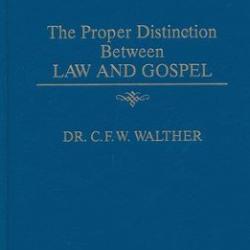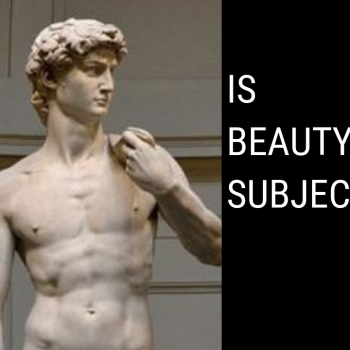“There is a deeper pleasure in following truth to the scaffold or the cross, than in joining the multitudinous retinue, and mingling our shouts with theirs, when victorious error celebrates its triumphs.” — Horace Mann, Thoughts

Social constructivism and social constructionism. What are these things? What do they imply? What are they connected with? Can they, for example, help to explain the recent actions of the Obama administration’s Department of Justice? (see here). Including, for instance, the federal demand that private doctors be willing to assist children in transitioning from one gender to the other? (see here) Or why a California court recently ruled it was illegal for pastors to advise youth about gay and transgender feelings? (see here) Or a N.Y. court recently said that when it comes to determining parenthood neither biology or adoption need to be considered? (see here)

Well… first of all, these ideas, social constructivism and social constructionism, are everywhere. Even in the domain of the hard sciences today (think biology, chemistry and physics), with its usual emphasis on what is called “realism” (namely, the idea that a “mind-independent reality” exists), most persons are already fully on board. It is now largely taken for granted that we, as individuals, certainly do actively construct our understandings of the world and how it works. Michael Polanyi, and then Thomas Kuhn after him, were just some of the figures who made this kind of thinking more prominent and important in the hard sciences
(note that we can acknowledge that even men like Aristotle – and “America’s Aristotle” after him, Charles Peirce – talked about the role human beings play in attaining real knowledge: he talked about how human beings could – through their inquiry and experience; capacity for imagination [phantasia] and ability to make mental images and symbols [phantasma]; and by hearing from the varieties of beliefs which had “previously withstood debate and argument” [endoxa] – arrive at a true understanding of the ways things take place in the world).
It seems to make some sense, doesn’t it? Doesn’t good education build on what pupils already know, “scaffolding” their current knowledge, and giving them more rich experiences in order to help them mentally build more complete understandings of the world? As you might guess, in the field of education, emphasis on students’ constructing their understandings of themselves and the world they inhabit is now the norm. Anyone who has studied the most influential educational theorists of the 20th century – Dewey, Bruner, Piaget, Bandura, Vygotsky – is well aware of this.
And again – what is the harm in this? Doesn’t it make perfect sense? Even many educators with more culturally conservative dispositions certainly think so, as they, like most persons in the hard sciences, tend to embrace social constructivism. In his book defending relativism, the Christian Reformed scholar James K.A. Smith focuses on the advantages of social constructivism, looking specifically at the thought of Richard Rorty and others (see the intro to my series critiquing his book here).
Meanwhile, those educators of a more liberal and politically activist bent – those invested in movements such as “critical pedagogy,” for example – tend to embrace the notion of social constructionism. And now, social constructionism – which I think is daily making less relevant the distinctions that social constructivists think are important[i] – is not only everywhere in academia – and not only in popular culture – but in our general culture as well. In a Wisconsin Public radio broadcast discussing Jacques Derrida and the philosophical movement known as deconstruction, To the Best of Our Knowledge host Steve Paulson said
“the way that we now talk about gender has been profoundly influenced by these ideas… we know that male and female are not strictly biological categories ; they are socially constructed identities which keep changing…. ‘Queer theory’ comes directly out of this and it would be hard to explain the emergence of… the trans movement without this theory…”
A couple questions I know you might be asking:
First, just what are the differences between constructivism and constructionism? How do those who adhere to these philosophies distinguish themselves from one another?

Second, where did these philosophies come from?
The answer to the second question is that they largely come from the social sciences and the field of psychology (and then, education) – and the ideas that grew up in these fields really owe a lot to Immanuel Kant, who built on what Descartes had started (as Ernst Troeltsch pointed out, for Descartes the question is no longer about ontology [“what is”] but rather the mind’s apprehension of reality, or “epistemology” [“an analysis of the contents of consciousness”, “what is known”]).
As regards the first question, some of the thoughts that I came across from a few academics in these fields might be of some help. I’ve tried to simplify and summarize them in the paragraphs that follow, but I’ll confess that some headaches may be unavoidable here… Therefore, my short answer: conceptually, there are some significant differences; practically, I don’t think the differences are significant – that is, if the person of a more conservative disposition insists on focusing on social constructivism at the expense of other things.
I will explain that a bit more at the end of this post. First though, let’s unpack these terms in some detail…
(skip to the end of everything in blue if you don’t want the details).
The psychologists Richard A. Young and Audrey Collin note that constructivism is a viewpoint that emerged in developmental and cognitive psychology (they mention folks like Bruner, Kelly, Piaget, von Glaserfeld and Vygotsky). It “proposes that each individual mentally constructs the world of experience through cognitive processes” (emphasis mine). Unlike positivism, they say, constructivism says the world can’t be known directly, but only by the construction of it actively imposed on it by the mind. Like positivism, they contend, it has a “dualist epistemology and ontology”: This means, according to Blackwell Reference online (not Young’s and Collin’s words), that that which is directly perceived is always distinct from the physical object itself, even if it is exactly similar to it like a faithful mirror image. In this sense, it is epistemological – “concerned with how we know and by implication how we develop meaning”. “These processes,” they say, “are internal to the individual—integrating knowledge (or meaning) into pre-existing schemes (assimilation) or changing the schemes to fit the environment (accommodation).”
They note differing positions within the “constructivist family”. Radical constructivists (von Glaserfeld) “interpret that it is the individual mind that constructs reality.” More moderate constructivists (Kelly, Piaget) “acknowledge that individual constructions take place within a systematic relationship to the external world.” Lastly, Social constructivists (Bruner, Vygotsky) “recognize that influences on individual construction are derived from and preceded by social relationships”. This, they say, differs from social constructionism because of its dualist assumptions (again, where that which is directly perceived is always distinct from the physical object itself), even if some in other disciplines who take on constructivism’s mantle also try in various ways to overcome this dualism and others related to it (i.e. dualisms of “mind and culture” and “biology and physical resources”).
They go on to say:
Martin and Sugarman (1999) contended that the failure of constructivism lies in its reliance on “an individually sovereign process of cognitive construction to explain how human beings are able to share so much socially, to interpret, understand, influence, and coordinate their activities with one another” (p. 9). Essentially, their point is that constructivism posits a highly individualistic approach without reference to social interaction, contexts, and discourses that make self-reflection, meaning-making, autobiography… possible. To some extent, this failure is being addressed as social constructivists (Bruner, 1990; Vygotsky, 1978) move to more social explanations and the dualist assumptions of constructivism are challenged… (bold mine) [ii]
Psychotherapist Berta Vall Castello starts to help us nail down the differences even a bit better. She talks about her realization that “the notion of identity as a story has permeated both constructivist and social constructionist approaches since their historical beginnings.” She quotes Gergen (1994) saying “The term ‘self-narrative’ will refer to an individual’s account of the relationship among self-relevant events across time. In developing a self-narrative we establish coherent connections among life events.” One can see here, I submit, these “construction-of-understanding” approaches addressing, like historicism, a real need: the importance of narrative when it comes to our understanding of the world. This is something that the West lost as a whole when it begin to lose faith in the biblical plot that had certainly brought a degree of coherence among its peoples. Instead, its elites begin to depend more on the “practicality” and objectifying tendencies inherent the scientific method – such that even classical philosophy – concerned with matters of justice and morality (but which also tended to underemphasize the importance of narrative) – also begin to be seen as less relevant than ever.
In an important paragraph, Vall Castello goes on:
Both constructionist and constructivist approaches share the basic epistemological assumption that “reality” is not revealed to us, but is instead reached through a process of construction. This entails that the meaning of what happens is not a passive, neutral, objective, detached, and external fact, but is instead the result of an active, passionate, subjective, engaged, and (inter)personal process of ongoing inquiry. However, these approaches differ in terms of the emphasis they place on the individual versus social worlds. Thus, whereas constructivist views tend to focus on meaning-making as an intra-individual process, the social constructionist perspective sees meaning as a process that occurs between people and through relationships. (bold mine)

She also points out that both approaches see this process as “an essentially linguistic one”. “All major constructivist and constructionist authors,” she insists, “incorporate the notion that language is not (or not only) a tool for representing [italics hers] reality, but is a means to make sense of reality in a social context—with individual authors varying in emphasis on these basic positions, from the more individual constructivist to the more socially oriented constructionist ones” (bold mine).[iii]
Back to Young and Collin for another key difference:
….social constructionism contends that knowledge is sustained by social processes and that knowledge and social action go together. It is less interested, or not at all interested, in the cognitive processes that accompany knowledge. Martin and Sugarman (1999) suggested that attention to these [cognitive] processes in social construction shrouds the construction of knowledge as an interactional and rhetorical process and reifies and externalizes the mental world which itself is constructed through discourse. This stance that is critical of knowledge construction is another distinction between social constructionism and the constructivist family.
In other words, as they go on to say, differing from the “dualist assumptions of the constructivist family, the ontological position that social constructionism invokes is generally understood as anti-essentialist and anti-realist (Burr, 1995)”. The differences, they insist, “run much more deeply for some social constructionists than the difference between a social and an individual orientation.” This means, in sum, that we – actually those who have the influence to do so and invite us along with them (don’t worry – they aim to be benevolent with their power to be sure!) – are always, in the midst of this ocean-like cosmos (i.e. fluid), building the airplane in the air…. This, Young and Collin infer, is the legacy of Berger & Luckman, Mead, Derrida, and Foucault – and there does not appear to be any real concern on their part that this legacy might, overall, be an undesirable thing.
So, what to make of all this heady stuff? (if you skipped the “in detail” stuff in blue above start here).
Keep in mind that these scholars are doing their best to put their finger on things that many who use these terms might not recognize or identify with. For example, in another article featuring a dialogue between three psychologists holding to different philosophies of how our understandings are constructed[iv], some saw a lot of overlap and few differences – even after being challenged with questions about relativism (a “boring” issue, one said ; “I’m not interested in what our basic human purpose in life is” said another ; “not a problem” seeming to be the general attitude…). They ended up talking about non-moral issues, largely echoing the positions noted in the book Is God a Mathematician?, which also deals with these issues of reality and just how or if our constructions make a difference – though just when it comes to issues of mathematics.

So can constructionism teach us some things – or perhaps better put, raise our awareness of some things we usually don’t pay much attention to? Sure – but realize the inherent moral relativism – and that its proponents often simply do not see this as a problem. And what about constructivism – is it also wrong at its core? I don’t think so. It’s not so much that it’s wrong as that it takes the emphasis off of what we should be focusing on… the fact that much in life is given to us: there is real truth and beauty and goodness – and this means moral goodness, even discernible purposes, etc. – in the world whether or not our constructions allow for this. And, interestingly, it seems that for many who are most eager to talk about the way human beings construct their understandings of the world, they are some of the least eager to talk seriously about seeking to know things like truth, beauty, and goodness (Bible passages about strong delusions come to mind…)
Rather, all, it seems, comes down to issues of position, power and privilege. Knowledge is power and power is knowledge. We create “truth” and “reality” – and the old lines between what we consider unchangeable and changeable in the cosmos are always – always! – changing. Since many persons are probably thinking of evolution at this point, I’ll just say this: Darwin himself is not to blame for this, even if his theory, which tends to exert a totalizing influence, doesn’t help matters one bit. In fact, both Hegel and Darwin fit their own influential worldviews into historicism, unleashed by the anti-Cartesian (understandable, but…) Vico. All this said, modern scholarship has evidently demonstrated that Vico’s repudiation of Lucretius, popularizer of Epicurus (whose views about nature and change seem much more compatible with Darwin), was not real but feigned!

And today, in spite of a few brave voices of protest from secularists, when the ruthlessly “empirical” and quantitative and technological Darwinian machine is basically taken for granted (fact!), this simply gives strength to the historicist viewpoint. And so, what does this Hegelian-historicist-social constructivist/ionist viewpoint imply? As Hans Gubmbrect says of historicism “there is no phenomenon in time that can resist change.”
None. And, that, to the horror of the most respected – and anti-Epicurean/Lucretian! – philosophers of classical antiquity, would include things like goodness, beauty, justice, etc.! (admittedly, one might argue that men like Plato and Aristotle only believed goodness, beauty and justice were unchanging precisely because the cosmos of which they were a part was thought to be eternal…but then again, Epicurus and Lucretius also did not question this either). Might this historicization of the Western consciousness also have something to do with many 20th century theologians like Karl Barth, Jacques Ellul, Paul Lehmann, Stanley Hauwerwaus, John Milbank, David Bentley Hart etc., abandoning notions of natural law as well?
I think in a situation like this – where some, still seeing the need to counter a relative “good,” “true,” and “beautiful” (note the quotes), can only put forward an evolving good, true, and beautiful – we need to question whether a simple realism or positivism (“There are some essential fundamental particles! There are some laws of nature that don’t change!”) can really be of help..(see footnote 1 again). The key question: Is a good, true, and beautiful that nevertheless evolves – fundamentally changes even! – still really good, true, and beautiful? One wonders if perhaps even Epicurus and Lucretius, given what they said, might have been hesitant to say that all the things they thought were good (real goodness!?) were or should be (freedom of the will via the swerve) subject to change! I again go to that most insightful of men, Mr. G.K. Chesterton, who puts it well (albeit in a more explicitly political context):
“[Progress] should mean that we are slow and sure in bringing justice and mercy among men: it does not mean that we are very swift in doubting the desirability of justice and mercy… We are not altering the real to suit the ideal. We are altering the ideal: it is much easier” (Orthodoxy, 1909, p. 195).

For Chesterton, that which is good (in this case justice and mercy) – the ideal – should change us and our current reality. What is good does not change – or, especially, is not changed by us as we change (“grow up”). Even if we do come to a greater realization of what goodness entails – and are even surprised by it or our previously anemic understanding of it! – a greater realization of goodness will, ultimately, be fundamentally contiguous with more child-like (not childish) notions.
Where to go from here? At this point, I will attempt to speak to Christians in particular, because I think that we really do have some good answers.
First, remember that Jesus Christ – God’s risen and vindicated Savior of the world (see Acts 17:30 and 31 for how this gets empirical) is the same yesterday, today, and forever. This is never to be lost, for by this truth, the Truth incarnate means to comfort us.
Second, when even conservative theologians insist that our knowledge, like every other community’s, exists inside of rational traditions with their own linguistic rules and ideas for understanding reality, think twice about what is being said – and what the world will take that to mean as regards the relevance of what we have to say. The importance of tradition and “social epistemology” here, yes ; “existing” only here in this way, no….
Why? Because third, there is this:
https://twitter.com/JustandSinner/status/759569007284326400
Realize that if Pastor Cooper is right to insist that Lutherans assumed a classical view of the nature of things (and with this, stable moral norms), that is not an intellectually indefensible thing – even if most of academia (save more conservative Roman Catholic and Eastern Orthodox institutions) currently won’t give you the time of day. Just wait though, and be confident that this kind of stubbornness is not about preservation of the status quo‘s power… rather there is wisdom – love – in such bulwarks…
FIN
Image credit of baby: http://www.flickr.com/photos/inferis/110652572/ by Tom Adriaenssen
Democritus picture source: http://www.phil-fak.uni-duesseldorf.de/philo/galerie/antike/demokrit.html – PD-US
[i] For example, some might say that while they do not fully buy into social constructionism, they are not overly concerned insofar as it does not deny realism (and, presumably, its “mind-independent reality”).
But is this really the issue to be concerned about, or are there perhaps more significant things to be attentive to? Consider the contemporary philosopher Robert Brandon, when he goes so far to argue that simply by speaking we already, in effect, are taking an ethical stance: “Asserting a sentence is implicitly undertaking a commitment.” This can be seen in a particular kind of social justice warrior’s absolute insistence that the seemingly harmless exclamation of doctor – and then a father and a mother that “It’s a boy!” – might ultimately turn out to be an oppressive act. The reason that this could be an act of violence vs. another is because in some way there really does exist – for everyone – something (a female brain? mind? soul?) that makes the exclamation to not be the case, or fact (here, “idealists”, “Romantics” and other “liberal progressives” might wonder about the “naturalism” they indirectly espouse). The person with “positivist” or “realist” sympathies pauses, if just for a moment, wondering if it really is right for a doctor and parents to share joy in such a matter. Aware of the pressure to conform to current views on these issues, perhaps they suppress any lingering thought that it would be ethical for them to agree with others who do assume boyhood. Therefore, they do not embrace the seemingly apparent reality before them…
Why? Because they do not want to be perceived as acting in an oppressive manner vs. what the individual feels about him/herself to be real, even if all the external “public knowledge” would point to the opposite being the case. Why? If they do insist that persons who think they are one gender are actually the other this would only confirm to others that their concern for “truth” is really only about power, about the desire to categorize and control… the desire to make everyone conform to the world of appearances for the sake of their comfort, “appropriate” order… sense of security – and not to allow people to be freed by the authentic truth only the individual can know (supposedly). That regard for the individual’s truth is the only good way for knowledge to be socially constructed – other constructions, captivated by external appearances, would be illusionary…
[ii] RA Young, A Collin. “Introduction: Constructivism and social constructionism in the career field.” Journal of vocational behavior, 2004.
[iii] Vall Castelló, Berta. “Bridging constructivism and social constructionism: The journey from narrative to dialogical approaches and towards synchrony.” Journal of Psychotherapy Integration, vol. 26, no. 2, 2016., pp. 129-143.doi:10.1037/int0000025.
[iv] Efran, J.S, S McNamee, B Warren, and J.D Raskin. “Personal Construct Psychology, Radical Constructivism, and Social Constructionism: a Dialogue.” Journal of Constructivist Psychology. 27.1 (2014): 1-13. Print.












